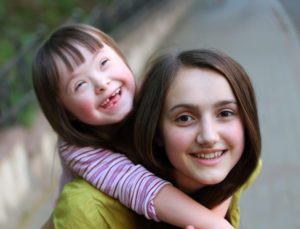
DD System Rescue Plan
DD System Rescue Plan: Budgets will be released from the House and Senate February 20th, so the time to influence is running out!
(Formerly EDCD waiver) Here you’ll find assistance on how and where to apply for the CCC Plus waiver, the criterion needed for approval, and what to do after approval is received.
These waivers provide access to comprehensive services and supports to individuals living with developmental and/or intellectual disabilities. Community Service Boards (CSBs) throughout Virginia administrate these waivers which are waitlisted.
A federally mandated benefit for Medicaid-eligible individuals under the age of 21, EPSDT provides services needed to identify, diagnose, and treat conditions based on certain federal guidelines. Individuals must qualify financially for Medicaid prior to accessing EPSDT.

DD System Rescue Plan: Budgets will be released from the House and Senate February 20th, so the time to influence is running out!

Save waiver services! Sign the petition, today! Also, read on to find out other ways you can help.

Caregiver’s wishlist is a thing! The holiday season can mean stress and frustration, instead of comfort and joy. Check this out to find out what is on your caregiver’s wishlist!

With the holidays approaching, many who are caring for aging loved ones may find themselves in a challenging position.

Just like with any insurance plan, there is a period of open enrollment where those with a MCO can change which MCO they are enrolled with, once per year.

Many families and individuals choose to consider aging in place or to stay in their home as opposed to taking up residence in a senior facility.
Several senior centers have been grossly impacted by Covid and the pandemic. The potential for contracting the deadly virus is highly possible for anyone outside the home.

5 tips for entering the workforce with a disability you can’t afford to miss. Learn what to do and where to find helpful resources.

Do you need Virginia medicaid waiver help? Perhaps you are seeking guidance with paperwork or locating resources. Moms In Motion/At Home Your Way can help!

Sometimes, a person who has a disability or medical needs requires around the clock care. The caregiver will undoubtedly need to relax, rest, handle their own affairs, exercise, retail therapy and even go on vacation. If you are the primary, unpaid caregiver you may benefit from the use of respite care.

We hope this communication finds you and your family safe and well during this unprecedented time. We wanted to provide you with an update on Appendix K flexibilities.
Adult children who receive Social Security benefits might obtain financial assistance through disabled adult child benefits. A person may be eligible for Social Security payments if their disabilities started before the age of 22. Because these benefits are paid on the parent’s earnings record, the SSA refers to them as “child” benefits. Each person receives
Rare Disease Day is an annual event that aims to raise awareness about rare diseases and the challenges faced by those affected. In this blog post, we will explore the history of Rare Disease Day and delve into its significance in creating a more inclusive and supportive world for individuals with rare diseases. What is
Understanding the Importance of Blood Donation and How You Can Make a Difference Blood Donor Awareness Month is an annual campaign held in January to raise awareness about the critical need for blood donations and to recognize the selfless individuals who donate their blood to save lives. This month-long observance aims to educate the public
The holiday season is a time of joy and celebration, but it can also present unique challenges for individuals with disabilities. From navigating crowded shopping malls to attending parties and social gatherings, the holidays can sometimes feel overwhelming and isolating. However, with the right mindset and a few simple strategies, it is possible to embrace
Every October is National Book Month. The month-long celebration emphasizes the value of reading, writing, and literature. How Reading Can Help Special Needs Children Reading aloud to young children is an excellent approach to engage them while also fostering language development and early literacy skills. When it comes to reading to special needs children, it
P.O. Box 609
Front Royal, VA
22630
Phone: (800) 417-0908
Fax: (703) 468-4958
Email: info@momsinmotion.net
Stay up-to-date on Virginia Waivers and Disability news, access to Assistive Technology, and more!